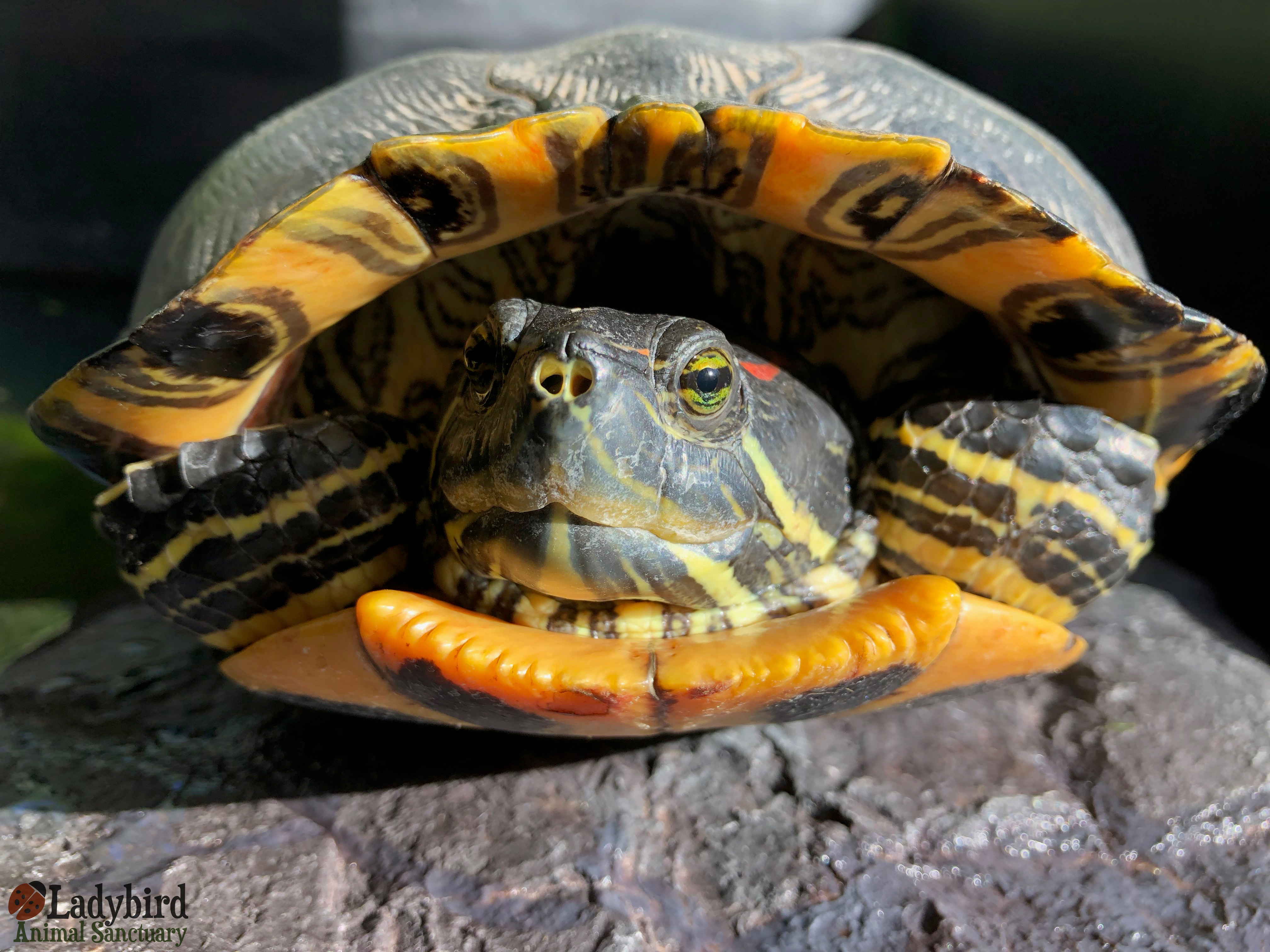Shelly
After being in our care for almost three years, Shelly passed away peacefully in her foster home after suffering an infection that vet care and medications were not helping.
She was a sweet old girl, and our hearts go out to her foster family and her turtle friend, Fluffy.
Rest in peace, Shelly. We’ll never forget you.
Shelly was found at the Royal Botanical Gardens by a staff member and brought into Hamilton Animal Services. Poor Shelly has been through the ringer. She’s missing a back foot, and it looks as if something had been tied around her shell that has caused deep ruts on either side. Thankfully, the ruts have healed over now and don’t seem to be causing her any issue.
Shelly had a check-up at the vet and was given a clean bill of health. In the warmer months, Shelly has an awesome outdoor turtle pond at her foster home. The pond is enclosed by a short fence all around to prevent escape. As well as lots of swimming space, there’s a large area on land to take a stroll, or relax and bask in the sun. There’s also (turtle safe) water plants for munching on. A summer turtle paradise!
Fluffy, the other adoptable turtle in our care, was introduced to the pond shortly after Shelly moved in. After a few days of Shelly adjusting to having Fluffy in her space, the two have made friends. Shelly and Fluffy can often be seen swimming together and soaking up rays on a sunny day. Yay for turtle friends!
Shelly is not a fan of being handled, but she will tolerate it when necessary. She much prefers swimming, basking, and the occasional stroll in the grass.
Because she’s a larger girl, Shelly will need a tank that is at least 150 gallons. Check out this page of the Little Res Q website for proper turtle set up.
We’ll never know for sure what happened to Shelly or how long she had been on her own in the wild. Red eared slider turtles are not native to this area, which means she was likely released at the RBG by her owner when she got too big/inconvenient for them. Sadly, a shocking number of turtles are abandoned this way. Even more are surrendered to shelters because their owners are not informed that the cute little loonie size baby they purchase in a pet store can become the size of a dinner plate. Most people aren’t prepared for how big a baby will grow, or the amount of work that goes into caring for a turtle as they get bigger.
If you cannot take care of your turtle any longer and you are unable to re-home him/her, DO NOT RELEASE INTO THE WILD. Releasing a turtle is not only breaking the law, it is potentially subjecting your turtle to a slow agonizing death due to his/her inability to adapt to the environment. Red eared sliders are native to the southern states, and don’t often survive harsh Canadian winters. Releasing a turtle into the wild could also introduce disease that can endanger wild turtle species, and disrupt an already delicate ecosystem.






















